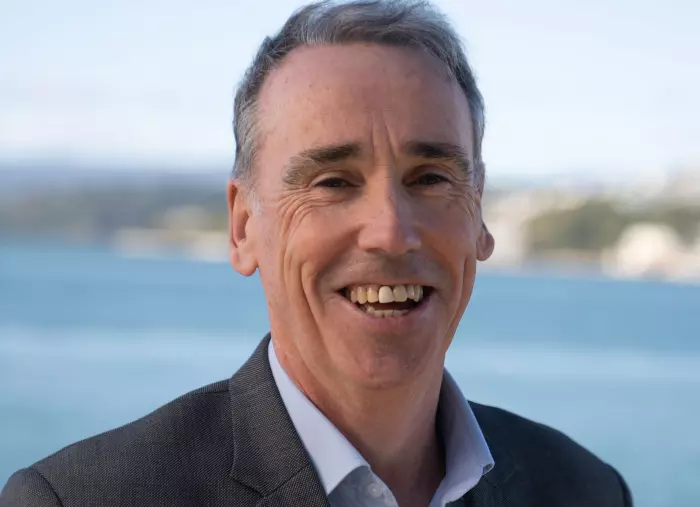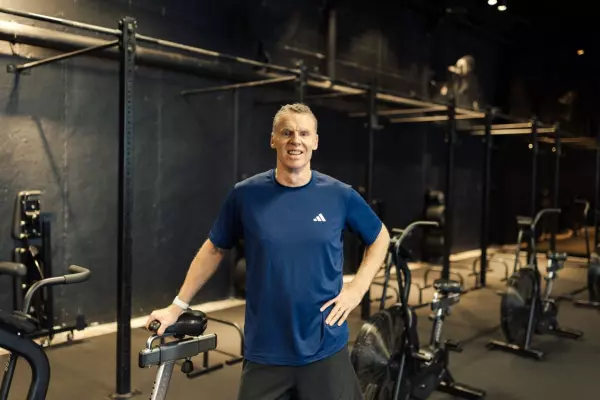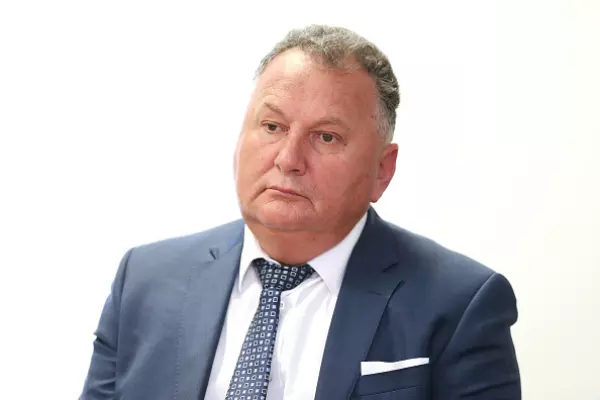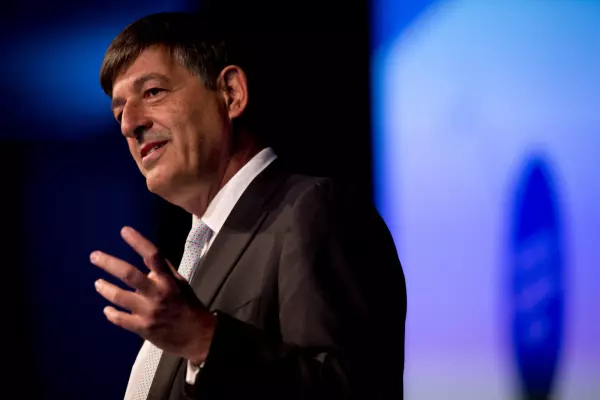Ralph Stewart is the chief executive of Lifetime Retirement Income and, before that, was the CEO of ACC. He also spent nine years as CEO of AXA Insurance New Zealand and five years as chair of Spicers Wealth Management. He has 30 years of experience in NZ's financial services sector, including eight years as general manager of marketing & strategy at Tower Insurance. Lifetime Retirement Income has $1 billion in funds under management. His two children live in Wellington and Auckland and Ralph lives in Wellington with his wife.
I’m a Wellingtonian and grew up in Newtown. My father was a property developer, and we were lucky enough to see a house built that looked out over the airport. Back in those days, the planes were big, old and noisy, with four engines, and they used to rattle the windows.
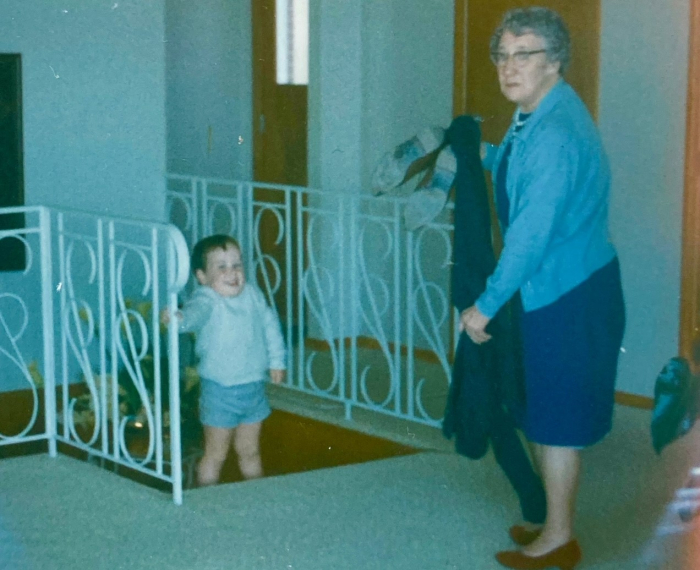
A young Ralph Stewart at the top of the stairs with his grandma, Rose Maria, at his family home in Newtown, Wellington. (Image: Supplied)
I remember fondly just sitting at the window, watching planes coming and going. It didn’t inspire any aviation dreams, though. I enjoy sitting in the back of the plane, not the front.
When I was fairly young, fishing was the big thing. And because I lived in Newtown, overlooking the water, I desperately wanted this flash fishing rod.
Dad wrote me a credit contract, and all I wanted was the rod, so I just signed it and didn’t check. Three years later, the fishing rod was gone but I was still paying bloody 10 cents a week for the thing.
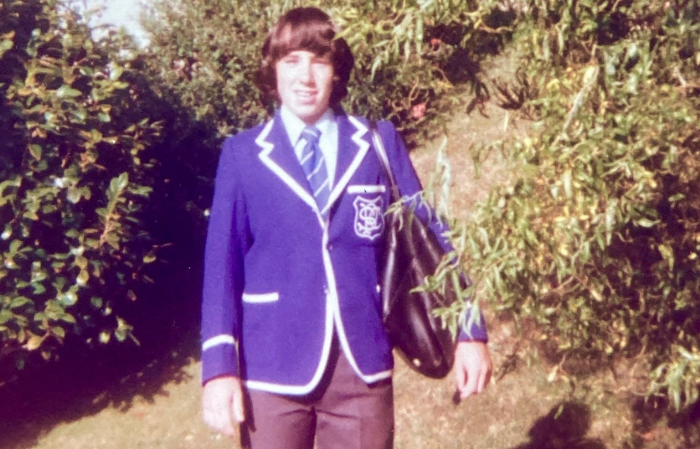
In uniform on his first day of college. (Image: Supplied)
I went to St Patrick's College for high school, and I helped launch the school’s karate club. The school had priests in those days, and they were extremely sceptical about Japanese fighting.
We launched the club in 1975 and I really enjoyed that. We started from scratch and after two years of losing the championship, we won it in the third year.
I did a business administration diploma at Victoria University of Wellington and I’ve been in insurance since I left school. Five years into my career, I was working with Tower Insurance and they thought it’d be a good idea to get my MBA. I very kindly got sent to England to do it.
I did a master’s in business administration at the University of Manchester and majored in finance. I worked around my MBA by driving a taxi.
I would drive it every Friday and Sunday night – I’d pick the car up at 6pm and had to return it by 6am the next day. The deal was the owner paid for the petrol and we split the earnings.
Driving around town also meant I could study in the cab, which worked really well.
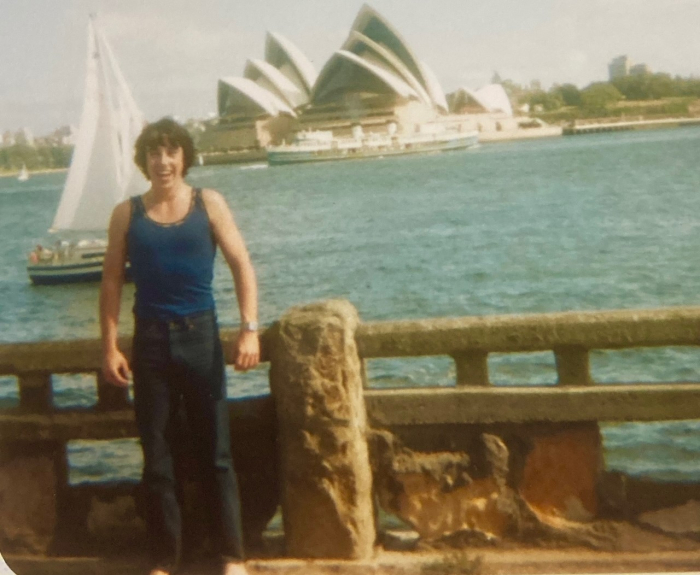
On a family holiday in Sydney. (Image: Supplied)
Insurance can be complicated but it's not. It's a pretty simple mechanism for protecting people at as low a cost as possible.
It all gets a bit overcomplicated but it's just protecting against the unknown. To the extent that it does that, it shouldn't change much – it's just going to keep doing that as well as it can.
It’s a fair expectation for people to think that when they retire, what they have in their superannuation will be enough. But in truth, super is not enough. We're getting a whole wave of people coming through who are realising that.
You need to find ways to grab your income. For some, that's working longer; for others, that's just sitting down and working out what they have and working out how to stretch it.
That's a big part of what we do – help people stretch their money. And in that process, it can be quite confronting. We all like to think we've got plenty of money.
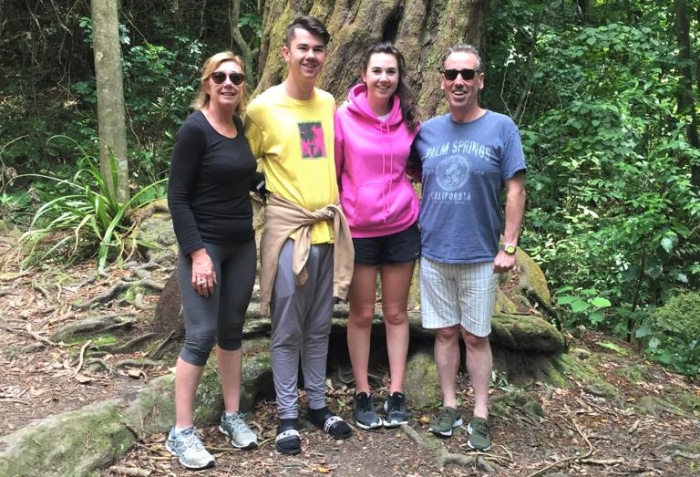
With his wife, Anita, his son, Harry, and his daughter, Sophie. (Image: Supplied)
What's the hardest thing about my job? The most difficult thing is helping people not to worry. Everyone's retirement journeys are different. Retirement is getting the money sorted out so you can get on with living.
There are some very unique people who can read the market and make observations about where the market might go in the future. Sometimes you'll hear them say, ‘Trust me, it just feels right'.
But I don't agree with that line at all. It can’t 'feel' right; it has to be right. Gut feeling is a luxury.
How do I handle stress? I work with my favourite people. We share stress and the people I work with are fantastic. We ride the rocket together.


